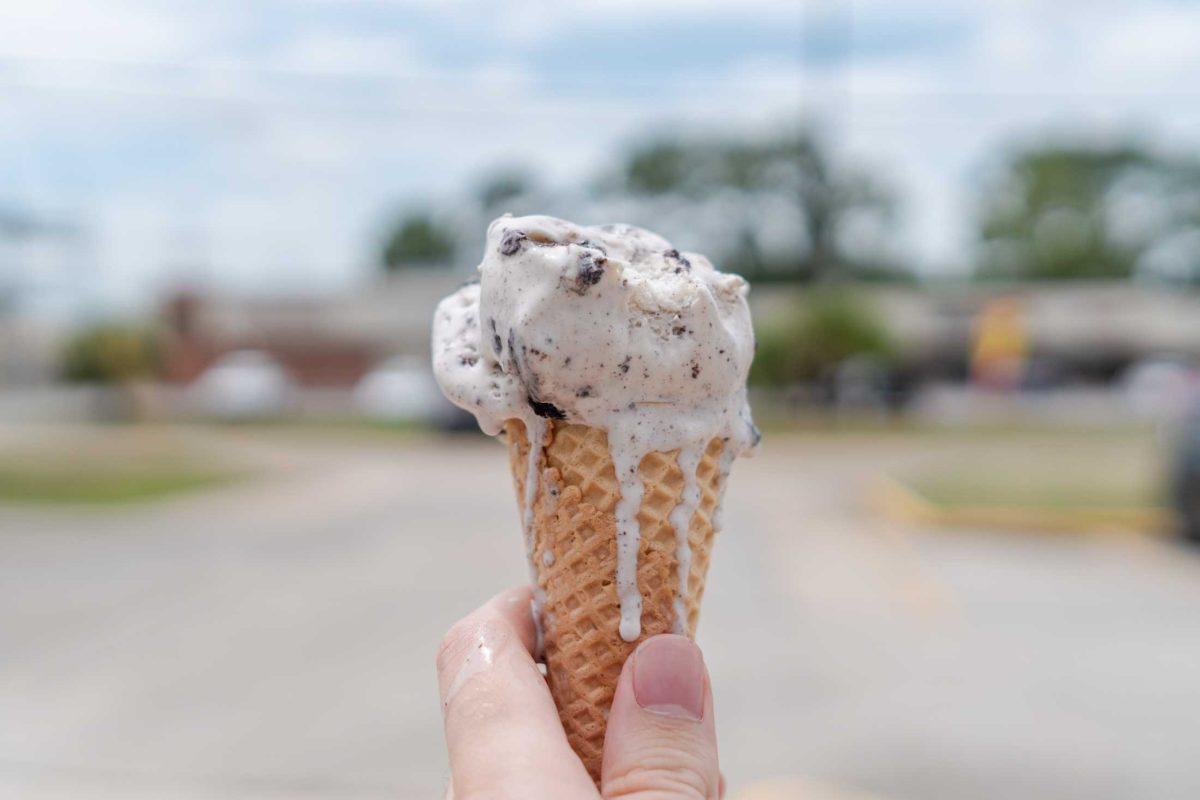Last month was the hottest June on record for many regions of Louisiana and for nurse and resident Tricia O’Neill, this was reflected in an inflated electricity bill caused by an overworked air conditioning unit.
“They need to stop saying it’s 92 degrees and it feels like 100-and-something. It’s a 100-and-something degrees,” O’Neill said, slightly sarcastically.
She’s like many of the state’s residents and visitors vainly trying to stay cool this summer.
Baton Rouge, New Orleans and Lafayette have each witnessed heat indexes peaking above 100 degrees Fahrenheit for the past week, according to a New York Times tracker.
Professor of geography and hurricane climatologist Jill Trepanier said these high temperatures are caused by high pressure lingering in certain regions that sink toward the ground and a lack of cloud cover causing these regions to bake.
The wildfires in Canada and the creeping effects of climate change have also contributed to recent temperatures’ climb, Trepanier said.
Hannah Lisney, a meteorologist with the National Oceanic and Atmospheric Administration’s New Orleans station, said the worst of the heat has moved to the nation’s Southwest and now hovers over Las Vegas and Phoenix.
But that’s definitely not to say that the heat Louisiana is experiencing isn’t serious.
“We have had heat advisories out nearly every day.” Lisney said. “It’s definitely dangerous conditions, especially for the more vulnerable.”
These advisories are typical for summertime in the South though, Lisney said. The weather in June was something of an anomaly but that’s more or less passed.
Both Trepanier and Lisney warned of the heat’s sneaky danger.
“People don’t realize they are experiencing symptoms of heat exhaustion or dehydration until it’s late enough that they land in the hospital, ” Trepanier said. “One of the other major concerns is that it does not cool off enough at night for people to bring body temperatures down.”
Prolonged exposure to high temperatures can cause internal organ damage, she said, especially for those without access to air conditioning.
Trepanier has two children; she said they’re always in the neighborhood pool, playing in the sprinklers or doing inside activities (she said they’ve recently spent less time in the pool since it feels more like a warm bathtub).
Her husband is a landscaper, therefore someone who’s always working in the heat. To combat it, she said, he uses wet rags and a neck fan to cool off. The goal is to promote evaporation, which Trepanier said was essential for cooling off.
Stuart Tully, an American history professor at Nicholls prefers not to confront the 100-degree-days head on. He listed “only going outside at 8 o’clock at night” as an effective strategy for beating the heat.
Tully is a Louisiana native, so he doesn’t have to pick his jaw up off the floor when a summer day hits triple digit temperatures. He said a hot summer is to be expected, but this one feels unique in how close to unbearable it’s tiptoeing. Some things that’d usually be a pleasant footnote of his daily itinerary turn into a slog of sweat and exhaustion, he said.
“I usually enjoy walking our dog. Not in the summer,” said Tully.
Native Kentuckian James Million is visiting Louisiana for the first time in a few years. The Louisiana heat wasn’t a surprise, he said, but it certainly is worse than the weather there which usually doesn’t exceed 90 degrees.
He emphasized sunscreen, wearing sunglasses and even sporting an umbrella.
“I actually burnt my head yesterday,” Million said.
Others have come to terms with the heat. Henry O’Neill believes the simplest methods for fighting the brutal weather to be the most effective. Another native Louisianan who works in the state’s tourism, he said he’s lived through high humidity and high temperatures his whole life and has learned to truck through them. His advice to any summer amateur was to not push it, stay in the shade when you can and listen to your body.
“You learn to drink a lot of water. Anybody with common sense would,” he said.




